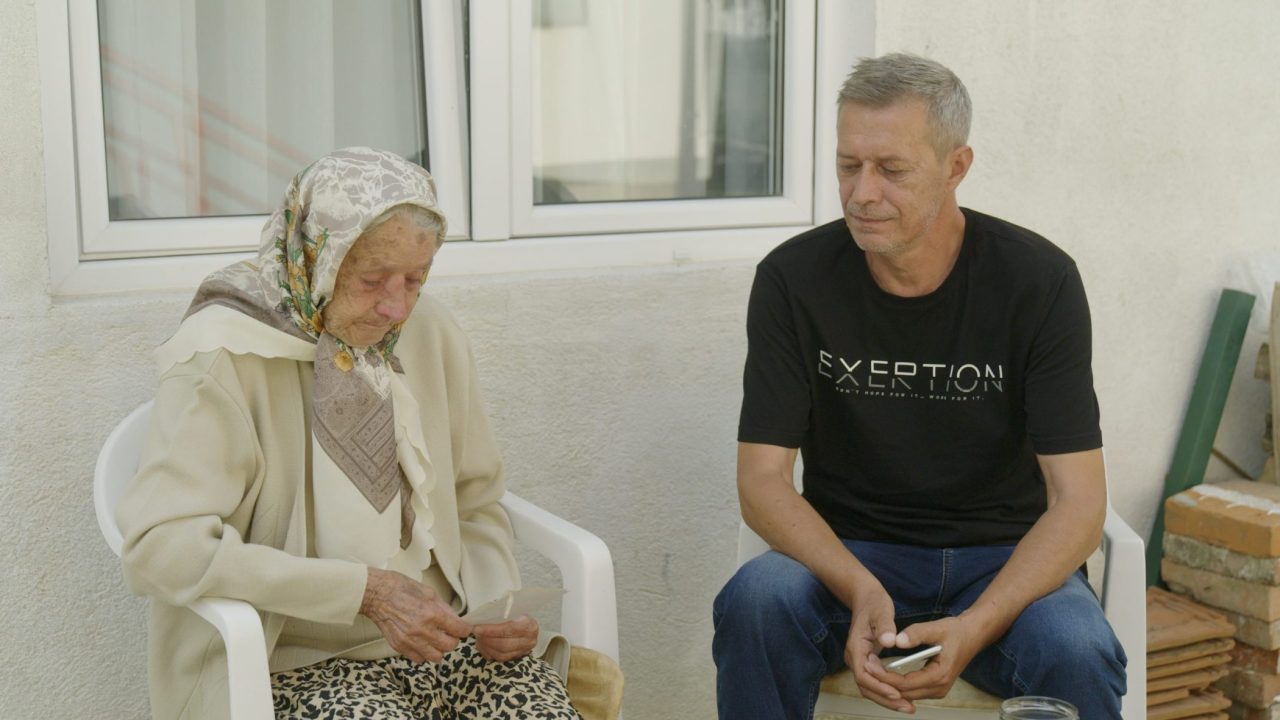This post is also available in: Bosnian
‘Taken in an unknown direction’
Elvedin Avdibegovic is on the missing list compiled by the Veterans’ Association Minor Volunteers of the 1992–95 Defence and Liberation War. He too was 16 when disappeared.
“No one could stop him from joining his father and relatives, neighbours; they kept a sort of watch for a month,” said his mother, Zekija. She has been searching for her husband and son for more than three decades.
“He was held in his primary school in Ilijas together with his father, uncles and other male family members,” Zekija told BIRN. She would bring him food and she recalled their last conversation, when Elvedin said he needed to be released so he could cut the grass at home.
“He was very hardworking,” she said. “Those were his last words to me. Sometime in the night from July 4 to 5, they were taken by truck in an unknown direction. He was taken along with his father and killed somewhere.”
Even this year, 32 years since their disappearance, members of the Association of Missing Persons of Ilijas Municipality together with representatives of the Missing Persons Institute of Bosnia and Herzegovina, searched the wider location around the Zerovanj mass grave, where 32 bodies were exhumed in 1996. No more remains were found.
In the verdict in the Hague Tribunal’s trial of Bosnian Serb former parliament speaker Momcilo Krajisnik, it was established that in May and June of 1992 Serb forces killed at least 22 Bosniaks in Ilijas, attacked several Bosniak-majority villages and destroyed numerous historical and religious landmarks; villagers were driven from their homes and many were kept in squalid detention centres. Krajisnik was sentenced in 27 years in prison.
According to a list complied by the Veterans’ Association, 223 minors were killed as members of the Army of Bosnia and Herzegovina in Sarajevo during the war. The Veterans’ Association president, Rusmir Piralic, said he thinks the number is partially accurate.
“We joined voluntarily,” Piralic insisted, adding that “it is quite normal that, when someone attacks you, you defend yourself”.
“As for deployment, some were runners, others were soldiers, or in logistics, some in manoeuvring, or infantry units to guard the lines,” he said.
Robbed of education and youth

The Ministry of Veterans’ Affairs at the level of the mainly Bosniak and Croat-populated Federation entity did not respond to a request for comment concerning the number of minors active in the war and how many were killed.
In the predominantly Serb-populated Republika Srpska entity, according to the Centre for the Research of War, War Crimes and Search for Missing Persons in the Territory of Bosnia and Herzegovina, 78 minors were killed while part of Bosnian Serb forces between 1992 and 1995. One more is registered as missing.
“Importantly, the military status of these victims was determined based on the fact that they had performed certain tasks for the army, but were rarely deployed in combat. In other words, they were not on the frontlines,” the Centre told BIRN.
Piralic is part of a project called Children of War – Children of Peace, in which former minors from all sides of the conflict talk to young people in Bosnia about the impact of war and the importance of building mutual trust.
They were schoolchildren when the war started, he said. “We were robbed of our education, youth, the most developmental part of our lives that we lived through in such privation,” said Piralic. “Even after the war, there was no programme to bring on board that young generation and school them or employ them as receptionists somewhere, and see how far they make it. None of that has ever happened.”
Robert Maric, who served as part of the Bosnian Croat forces and lost his mother in the war, said he was recently asked to weigh in on the construction of a joint cultural hub that would contribute to reconciliation.
“It’s easy to make a building, whatever the cost,” he said. “The most difficult thing is to build bridges between people, because blood was spilled – that was the point for them.”
This article was written with the assistance of the project EU Support for Confidence Building in the Western Balkans, funded by the European Union and implemented by the United Nations Development Programme, UNDP. The content of this article is the sole responsibility of BIRN and does not necessarily reflect the views of the European Union or the UNDP.

